SAVE THE DATE:
Swing Forward While Swaying Back
exhibition opening
Longwood Art Gallery @Hostos
October 3, 2018 5:30 – 8:30pm
450 Grand Concourse, Bronx, New York, 10451.
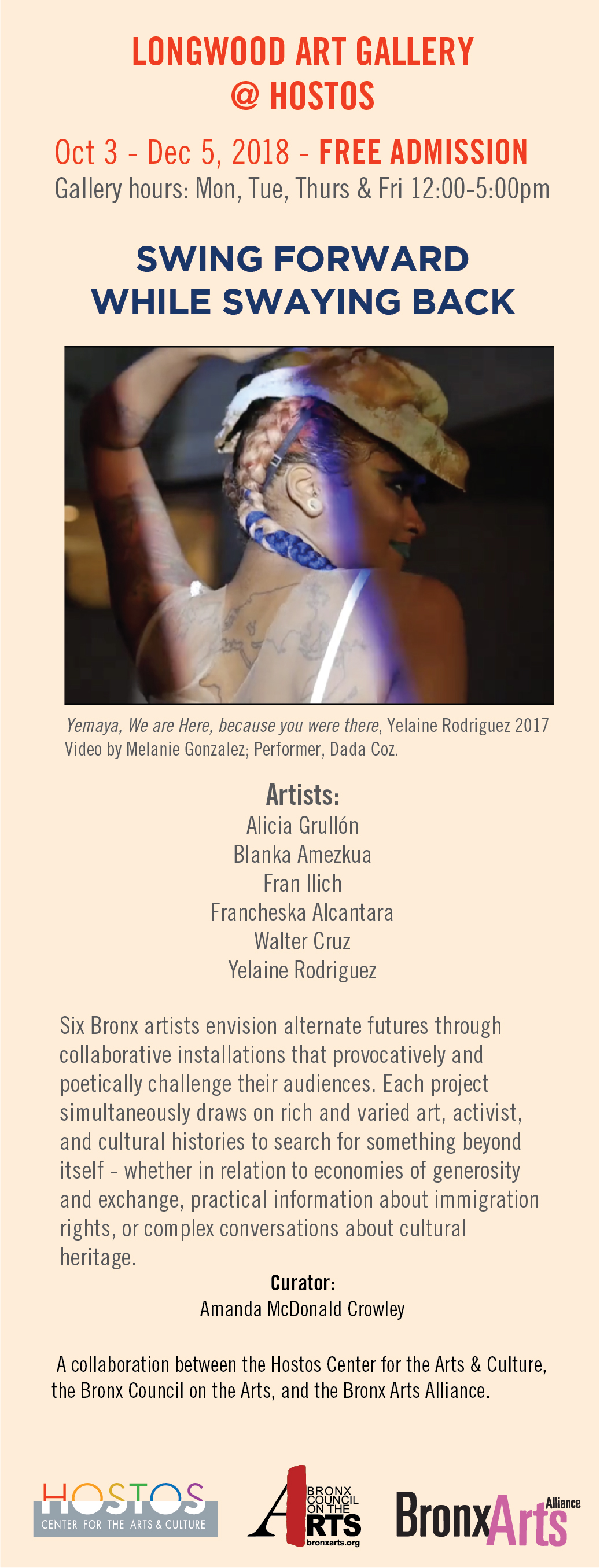
SAVE THE DATE:
Swing Forward While Swaying Back
exhibition opening
Longwood Art Gallery @Hostos
October 3, 2018 5:30 – 8:30pm
450 Grand Concourse, Bronx, New York, 10451.

I’m in the process of collating resources on the topic of art and science initiatives from previous research consultancies I’ve undertaken on this topic.
In the interim, here are a few texts, books, and readings that deal with art and science collaboration.
Readings:
Beloff, Laura; Berger, Erich; Haapoja, Terike (eds) Field_Notes – From Landscape to Laboratory – Maisemasta Laboratorioon, Finish Bioart Society, 2013
Brown, Andrew, Art & Ecology Now, Thames and Hudson, 2014
Century, Micheal, Pathways to Innovation in Digital Culture, 1999, updated 2013
Da Costa, Beatriz and Philip, Kavita Tactical Biopolitics: Art, Activism, and Technoscience MIT Press, 2008
Farmer, Caroline; Pierce, Julianne (eds) Scientific Serendipity, Australian Network for Art and Technology, 2002
Harris, Craig (ed.) Art and Innovation, The Xerox PARC Artist-in-Residence Program, MIT press, 1999
Hauser, Jens (ed.) sk-interfaces. Exploding borders – creating membranes in art, technology and society, Liverpool: University of Liverpool Press, 2008
Kac, Eduardo, Signs of Life: Bioart and Beyond, MIT Press, 2007
Jennings, Pamela. New Media Arts, New Funding Models, Report prepared for Creativity & Culture. New York: The Rockefeller Foundation, 2001
Mitchell, Robert E., Bioart and the Vitality of Media, University of Washington Press, 2010
Myers, William, Bio-Art, Altered Realities, Thamtes and Hudon, 2015
Scott, Jill, Artists-in-Labs: Processes of Inquiry, 2006
Scott, Jill ARTISTS-IN-LABS: Networking in the Margins, 2010
Snow, C.P. The Two Cultures, Cambridge University Press, 1993 (updated 2012)
Wilson, Stephen Information Arts: intersections of art, science and technology, MIT Press, 2002
Wilson, Stephen, Art & Science Now, Thames and Hudson, 2012
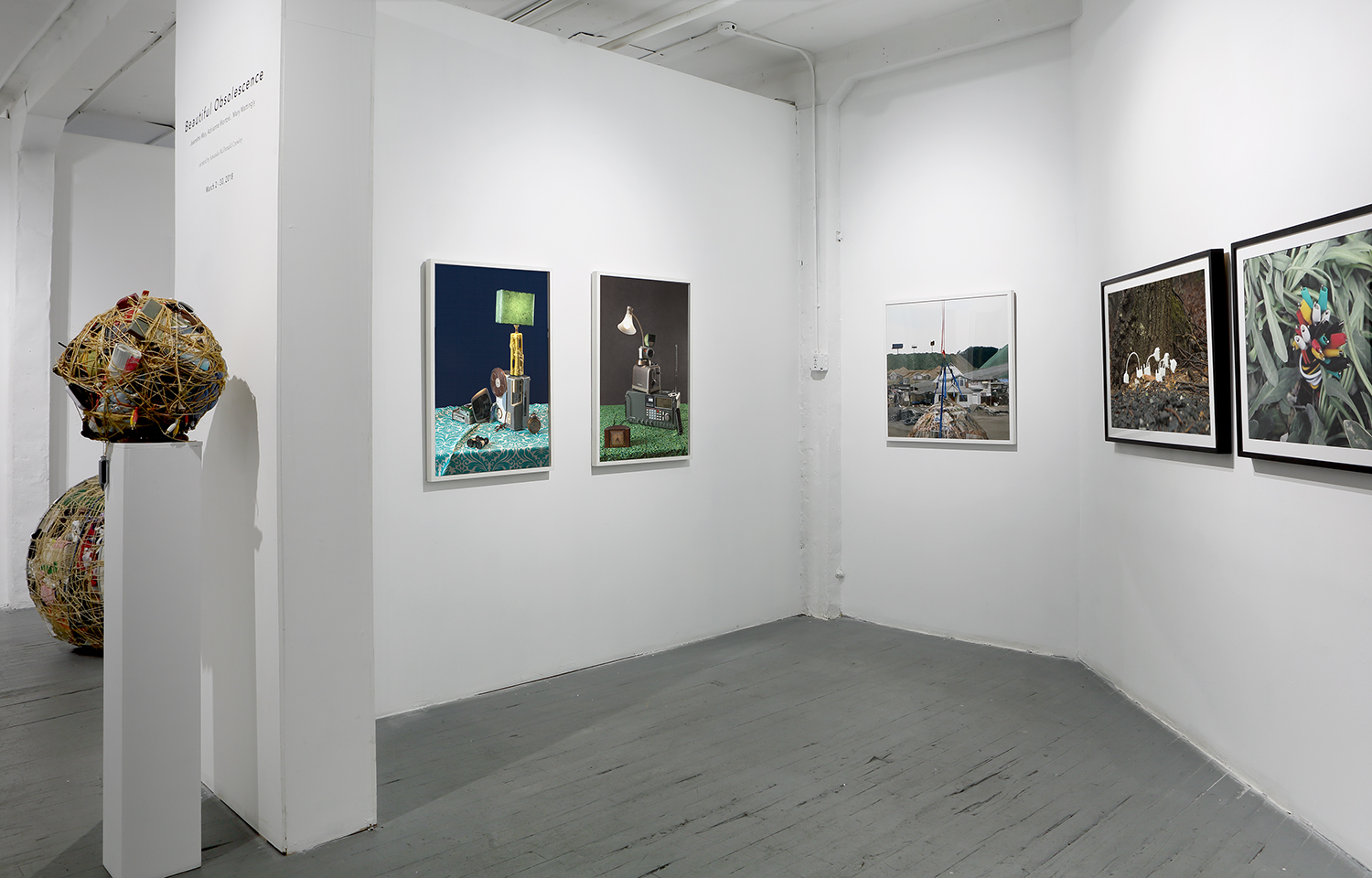
Please join us for the closing reception of Beautiful Obsolescence.
Friday March 30, 5 – 7 pm, with informal artist talk at 6pm!
Cluster Gallery: 200 6th Street 3E, Brooklyn, NY 11215
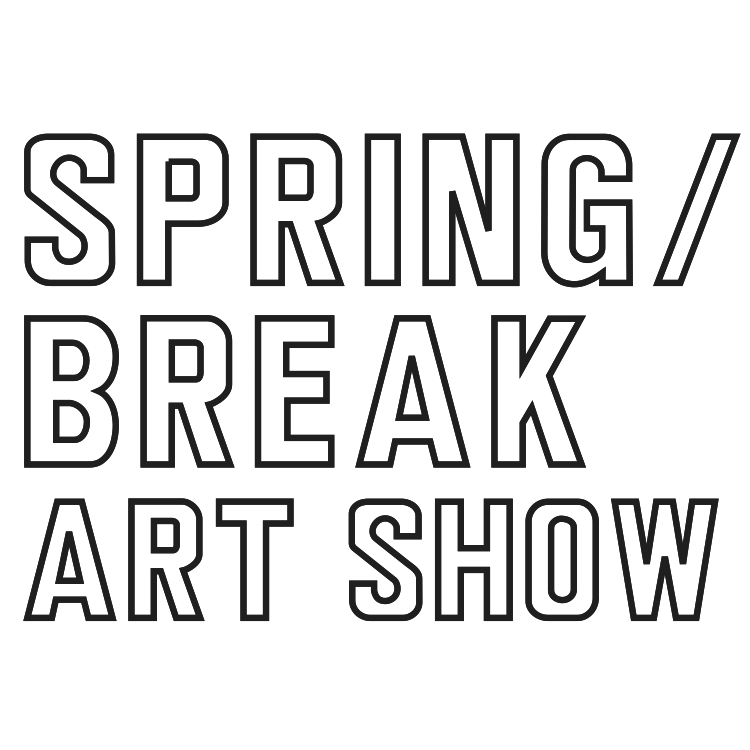
The sales site for SPRING BREAK Art Show is up. Check out the wonderful work in our contribution to the STRANGER COMES TO TOWN theme – (En)coded Conversations.
I’m so pleased to be presenting work by Alicia Grullón, Chloë Bass, Gonzalo Fuenmayor, Juanli Carrión, and Riitta Ikonen.
Works available at SPRING/BREAK Art Fair site!
Buy tix to visit us on the 23rd Floor, adjacent rooms 2317 and 2313.
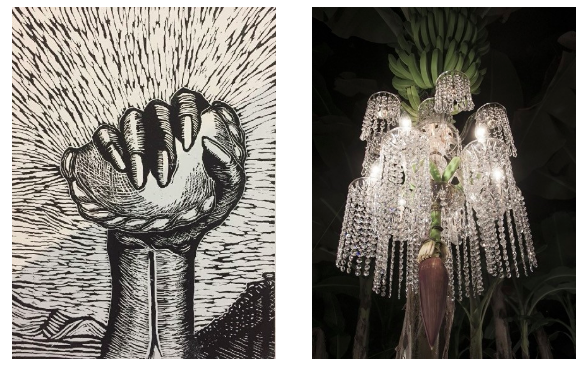
L: Alicia Grullón, Empanar!
R: Gonzalo Fuenmayor, GENESIS VIII
March 6 — 12, 2018
4 Times Square, NYC (Chashama), Entrance at 140 West 43rd Street
From March 6 – 12 I will have a project at SPRING/BREAK Art Show during Armory Arts Week. My response to the theme STRANGER COMES TO TOWN is a project I’ve titled (En)Coded Conversations.
List of works at SPRING/BREAK Art Fair site, on consignment through April 30!
Chloë Bass, Juanli Carrión, Gonzalo Fuenmayor, Alicia Grullón, and Riitta Ikonen are storytellers, who specifically engage their audiences in conversation, and who make work that speaks to strangers helping one another navigate new terrain. Sometimes these conversations are awkward and uncomfortable, but they are always about making connections and navigating safe pathways.
Carrión grew up in regional Spain in a farming and wine growing county: members of the community knew one another, and everyone was connected. The butcher and the baker were essential community members; no one was a faceless stranger. When he moved to New York City he struggled to find ways to participate directly in his communities. As he navigated New York, he started to think about communities as ecosystems and his role, and our role, as plants in those ecosystems, and thus the idea of OSS gardens was born. The drawing for (En)coded conversations questions the text of the USA Immigration and Nationality Act by coloring individually its 148,123 characters to create botanical illustrations of the plants selected by immigrants interviewed for #OSS Manhattan.
Alicia Grullon, serves up empanada and knowledge with her project Empanar! – a mobile art project working off Bronx street food culture and traditions from El Taller Gráfico Popular. Along with empanada, Grullon distributes flyers that provide information to immigrants on their rights and where to seek counsel.
Gonzalo Fuenmayor’s Papare series examines ideas of exoticism and the complicit and amnesic relationship between ornamentation and tragedy. Opulent Victorian chandeliers and other elements, reminiscent of a decadent colonial past, proliferate from banana bunches, alluding to a tragic and violent history associated with Banana trade worldwide. The theatricality and dramatic nature of the imagery, subordinate the contradictory into a delicate and imaginative order, evoking a certain kind of reconciliation or tense harmony between disjointed realities.
For Gather the house around the table, Bass produced a line of domestic materials that she uses to interact with her audiences – sometimes in plain sight, and sometimes nearly imperceptibly. Visitors are invited to take their place in at the table, using her objects to enact everyday poetry and share food.
Riitta Ikonen’s photographs in which she costumes herself, and places herself in awkward conversation with built and natural environments are disguises. She is visible in plain sight, while also in conversation with a landscape. The works ask as to think about the costumes (or disguises?) we wear help us navigate new territory.
Individually, these works speak secrets to specific audiences. Collectively, they help us navigate new terrain and make conversation with new communities.
Beautiful Obsolescence
Cluster Gallery
March 2 — March 30, 2018
Opening Reception: Friday March 2, 7 — 9pm
CLOSING RECEPTION: Friday March 30, 5 — 7pm
Cluster Gallery: 200 6th Street 3E, Brooklyn, NY 11215

I am delighted to have been invited by Cluster Gallery to curate Beautiful Obsolescence, a group exhibition featuring photographic works by Jeanette May and Adrianne Wortzel, as well as sculpture by Mary Mattingly.
Our contemporary lives are filled with redundant technologies and consumer goods. To make sense of the technologies and objects that fill our lives, the artists in Beautiful Obsolescence reimagine consumer goods. By recontextualizing our view on these objects the artists bring a fresh eye to how these objects affect us, giving them new lives.
Jeanette May’s Tech Vanitas photographs of precariously stacked gadgets address the anxiety surrounding technological obsolescence. As May observes, we live in an age filled with devices that make domestic life faster, smarter, easier, and yet, more complicated. The more we yearn to keep current — the newest phone, computer, camera, audio system, coffee maker — the more we produce, consume, and discard. Tech Vanitas references the 17th Century vanitas paintings which celebrated The Netherlands’ new wealth. Just as Dutch Golden Age still lifes portray the abundance afforded a prosperous culture, Tech Vanitas embraces luxury, honors design, and acknowledges the fleeting nature of earthly pleasures.
In Adrianne Wortzel’s EX SITU CONSERVATION: Colony Relocation for Electronic Detritus an inventory of machine parts and electronic elements are photographed as surviving artifacts of technologies facing obsolescence. Objects are arranged in nature, perhaps even as species threatened with extinction. Her photos are an ironic attempt at reverse psychology — a reverence of technology at any price to the environment.
Mary Mattingly’s DRUM from her series Blockades, Boulders, Weights is a sculpture created from mass-produced objects the artist has collected over the years. Her goal is to create structures of bundled objects so that she is really faced with everything on which she relies and consumes. “And it’s a lot”, she says. Mattingly hopes to get people thinking about what we’re taking from the earth, how we can use what we already have to our best advantage. Her sculptures show just how much we’d have to carry if we bundled our objects on own backs.
The artists in Beautiful Obsolescence simultaneously critique and celebrate the multitude of objects we accumulate, to make sense of the stuff we collect in our lives. “May, Wortzel, and Mattingly are all storytellers”, says McDonald Crowley. “Through arranging objects, they compose narratives that help us to make sense of the technologies and belongings that we gather around us, immortalizing them as art objects and compositions: what might be considered trash becomes beauty.”
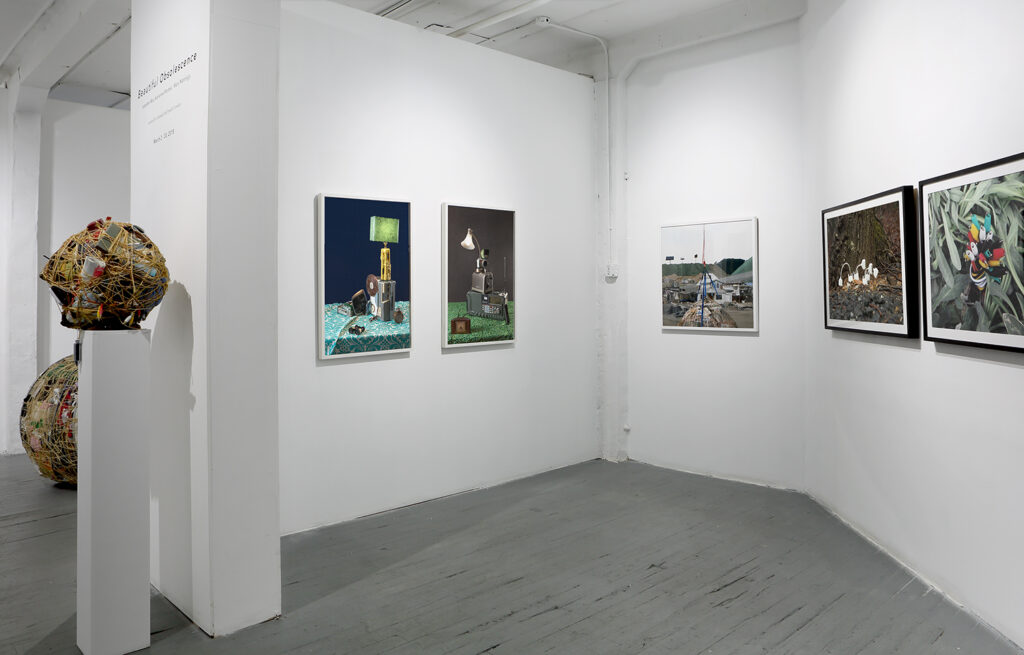
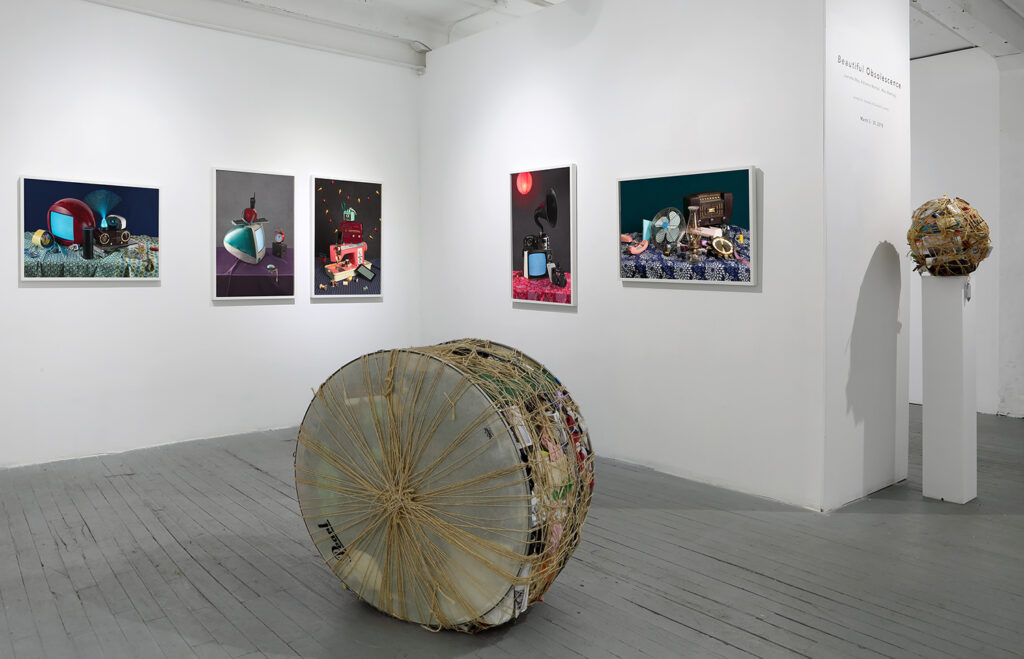
Amanda McDonald Crowley is a cultural worker and curator who creates new media and contemporary art exhibitions and events that encourage cross-disciplinary practice, collaboration, and exchange. Amanda has recently developed exhibitions and public art programs with a broad range of organisations including Detroit Art Week, Kulturföreningen Triennal (southern Sweden), PointB (Brooklyn), New Media Scotland and the Edinburgh Science Festival (Edinburgh), the Austrian Cultural Forum (New York City), Pixelache and the Finnish Bioart Society (Helsinki), Gallery CalIT2 at the University of California, San Diego (San Diego), and Bemis Center for Contemporary Arts (Omaha). In summer 2018 she was curatorial advisor for two public art commissions: with Mary Mattingly for Art Prospect public art festival (St Petersburg, Russia) and for Di Mainstone’s Sunderland’s Northern Spire Bridge public art commission (Sunderland, UK). She currently works with Mattingly on Swale, a floating food forest in NYC and land-based initiatives in Concrete Plant Park on the Bronx River and on Governors Island, NYC; and she additionally has advisory roles on artist-run projects including Vibha Galhotra’s S.O.U.L Foundation, Delhi, India; Juanli Carrión’s Outer Seed Shadow, NYC; Shu Lea Cheang’s CycleX, upstate NY.
She has held executive leadership positions with Eyebeam art + technology center in New York, Australian Network for Art and Technology, and the Australia Council for the Arts. She has also worked on several significant international Festivals including ISEA2004 (International Symposium of Electronic Art) in Helsinki, Finland, Adelaide Festival 2002, and the Australian Video Festival where she curated and produced programs of internationally significant artist residencies, symposia and exhibitions. Amanda has had articles published in journals such as Voices in Contemporary Art (VoCA), ArtLink, and Art Asia Pacific. She has done curatorial residencies at Helsinki International Artists Program (Finland), Santa Fe Art Institute (USA), Bogliasco Foundation (Italy), Sarai New Media Institute (Delhi), and Banff Center for the Arts (Canada). Research expertise includes art+science, art+tech, art+food, public engagement, art residencies. publicartaction.net
I recently contributed an article about Juanli Carrión’s most recent iteration of his Outer Seed Shadow project (OSS#MH) to Voices in Contemporary Art, VoCA.
Juanli Carrión’s most recent iteration of his Outer Seed Shadow project (OSS#MH) was installed in the Marble Hill neighborhood in the Bronx, New York City in the spring of 2017. It is an ongoing project intended as a permanent fixture at the Marble Hill Houses community, but it will continue to grow, quite literally.
You must be logged in to post a comment.